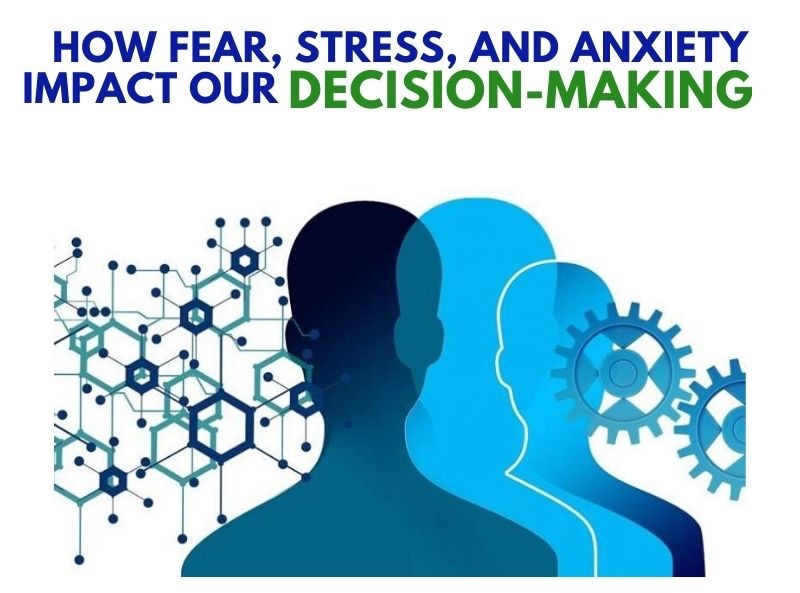|
I still remember the feeling. During the early days of the mortgage meltdown in 2007, I was working in real estate and had just written a cheque for $30,000 to buy into a small mortgage company. And then, only weeks later, it all came crashing down. The rest is history, as they say, but I want to focus on is the feeling I had every single morning - you probably remember it well if you were in the business. I woke up every single morning with a sining feeling in my gut, a slight buzz of panic always in the background as I put on my tie, tried to put on my best face, and drove to work. And all day long, it was like getting kicked in the stomach (or someplace a little lower!)...and coming back for more, again and again. I also recall how hopeless it felt, like my choices shrank until it felt like I was working in a tiny phone booth with no oxygen. If you're a Realtor or lender who was working in those days, you probably have similar recollections, and our current climate economic climate may stir those old, unwelcome anxieties. For now, we've been miraculously spared by low interest rates and hot buyer demand, so I'm sure it was easy to dismiss those feelings and go to work with a smile every morning. For now.
In fact, our heightened anxieties may be leading us to make questionable decisions that only dig a bigger hole. And if you’re like most people in our modern society, stress, fear, and anxiety are an unfortunate part of regular life.
And let’s be honest – a good portion of our stress and worries in life come from finances.
And those numbers are BEFORE the Covid-19 pandemic when 40 million people lost their jobs and 4.8 million people stopped making their house payments! Needless to say, we’re all concerned, deeply worried, or even in panic mode over our finances these days in some capacity. Add in an unprecedented level of fear over health concerns, whether the kids will be able to go back to school, and the mental health effects of social isolation or losing loved ones, and our cortisol levels (the fight-or-flight hormone) are continuously in an elevated state. So, what does that do to the decisions we make? Will an abundance of fear, stress, and anxiety help or hurt us when we’re faced with critical choices? And as a business person who is in sales and maybe an entrepreneur, how might we see the effects of our stressors and anxieties on day-to-day decisions? The data on decision-making and stress or anxiety. A host of studies show the profound effects of stress on our decision-making process, but I’d like to highlight a few:
Here are 5 ways stress affects our decision-making: 1. We become reactionary When we're in a state of stress, anxiety, or fear, our brains emit high levels of cortisol, which is known as the "fight or flight" hormone. In this heightened state, our perceptions are more acute, and we tend to be far more reactionary. While cortisol and an adrenalized state helped us when we were running from dinosaurs or fighting off invaders, it doesn’t serve the modern human well, as prolonged cortisol levels are harmful to our health – and cause use to be reactionary with our decisions at the exact time when we should be more careful, critical, and measured. 2. We disproportionately focus on the positive You may think that high levels of stress prompt us to see the world as all doom and gloom, but the opposite may be true. Research shows that acute stress actually leads our brains to ignore negative consequences and focus on the positives, or pleasure, instead. That's right – we're more likely to cling to any positive feedback or hope for positive outcomes when under stress instead of facing the reality of negative consequences. 3. We may think our options are binary One of the key findings of how our brains make decisions under stress is that we inadvertently restrict our options and solutions until we may think only two choices remain. We think that our only options are to take the job or not take it, to buy the service or not buy it, etc. But in the real world, our options are never binary (yes or no), and there are a multitude of solutions we can find if we only have the clarity to problem solve. Unfortunately, when under stress, our menu of perceived options shrinks down to very few, which forces our hand with some bad or limited decisions. We should entertain more options when under fire and facing stress and anxiety, not less! 4. We come up with quick fixes instead of problem-solving When we're feeling the strain of fear or anxiety, we're also likely to make decisions much more quickly (which isn't necessarily a good thing). Perhaps it's our fight-or-flight instinct kicking in, but our thought processes, problem-solving methods, and decision making tend to be rushed when the heat is on. That may allow snappy, definitive decisions in combat or in the face of an emergency, but they don't help us in day-to-day life when it comes to decisions about finances, business, relationships, or other important life choices. 5. We abandon our normal decision-making process There are two basic types of decision-making processes, which are based on your personality type. Some people are analytical, crunching numbers, taking in as much information as possible, and weighing all options such as a chess player who scrutinizes all of their moves carefully. The second personality type relies on their instincts and makes gut-level decisions, “going with the flow” and counting on their intuition when pressed to make a choice. The fact is that neither method is right or wrong, and by sticking to the decision-making process that feels best to that individual, they build up a lifetime of practice and hone that skill. However, when feeling the stress or pressure, we tend to abandon our comfortable and trusted method of decision making. Those who rely on instinct start crunching data and information; analytical people throw that out and go with their gut. While we just noted that neither of these methods are wrong, you shouldn’t switch course and try a new, unfamiliar, or un-practiced decision-making process when under stress! Do men or women make better decisions when under stress? Interestingly, research has pointed to some inherent differences in the decision-making process of women and men. A study at the University of South Carolina found that under pressure, men took bigger risks than women, who were significantly more conservative. So, when forced to make decisions or solve problems under stress, women tend to take more time, weigh their options, and become more analytical, while men make snap decisions. To account for these patterns, researchers point to differing responses in the anterior insula and dorsal striatum, which moderate our choices when rewards (like money) are on the line. It turns out that women may make better decisions when under stress! *** The good news is that no matter who you are, there are ways you can be conscious of your decision-making patterns and work to correct them as needed. There are also plenty of ways to naturally reduce your anxiety or be more clear-headed when making decisions, like deep breathing, meditation, exercise or fresh air, and positive visualization. -Norm :-) PS This article first appeared on Kelly Resendez' Foundation To Sustainable Success. Thanks, Kelly!
Sources: https://www.psychologytoday.com/us/blog/the-athletes-way/201603/how-does-anxiety-short-circuit-the-decision-making-process https://www.psychologicalscience.org/observer/under-pressure-stress-and-decision-making https://hbr.org/2017/08/stress-leads-to-bad-decisions-heres-how-to-avoid-them https://healthland.time.com/2012/03/05/decision-making-under-stress-the-brain-remembers-rewards-forgets-punishments/ Directions in Psychological Science. Northwestern Mutual Capital One & The Decision Lab
1 Comment
|
Categories
All
Archives
December 2020
|
Get in touch: |



 RSS Feed
RSS Feed
